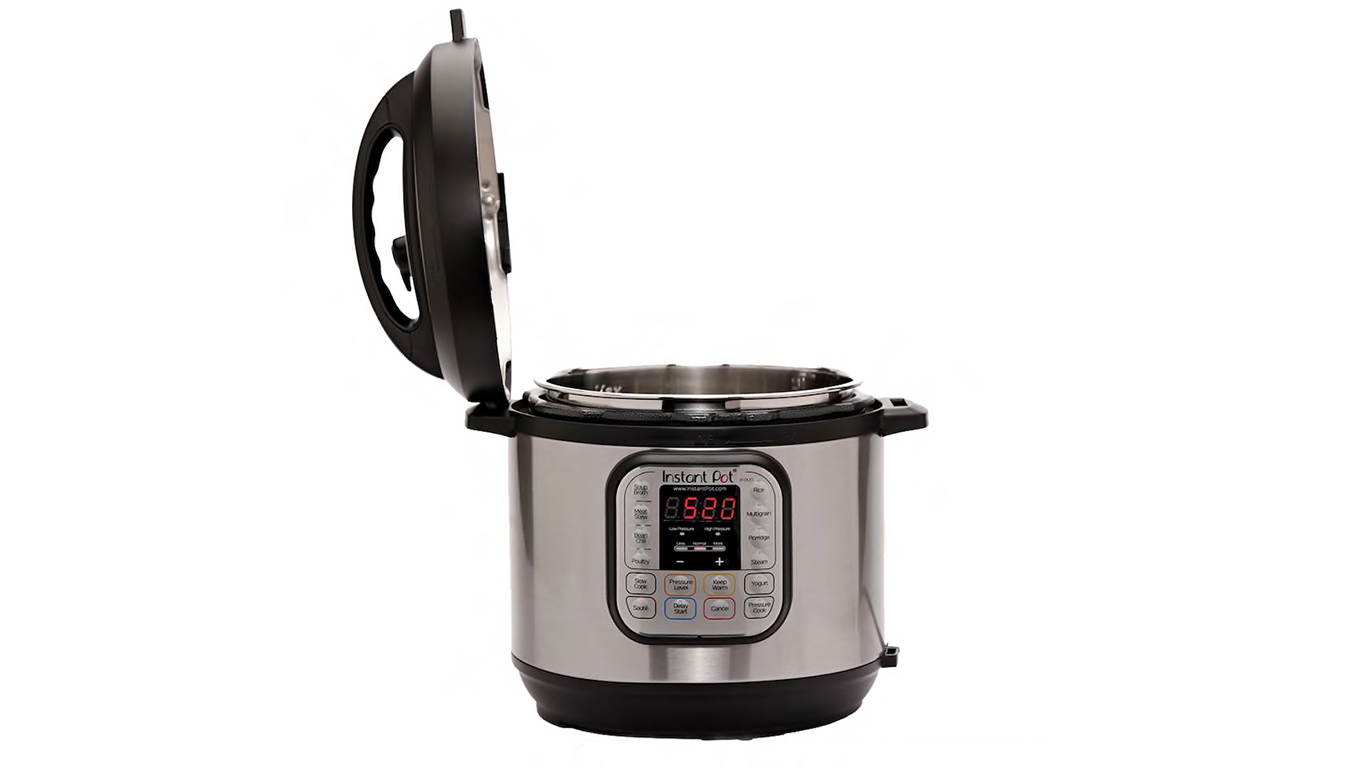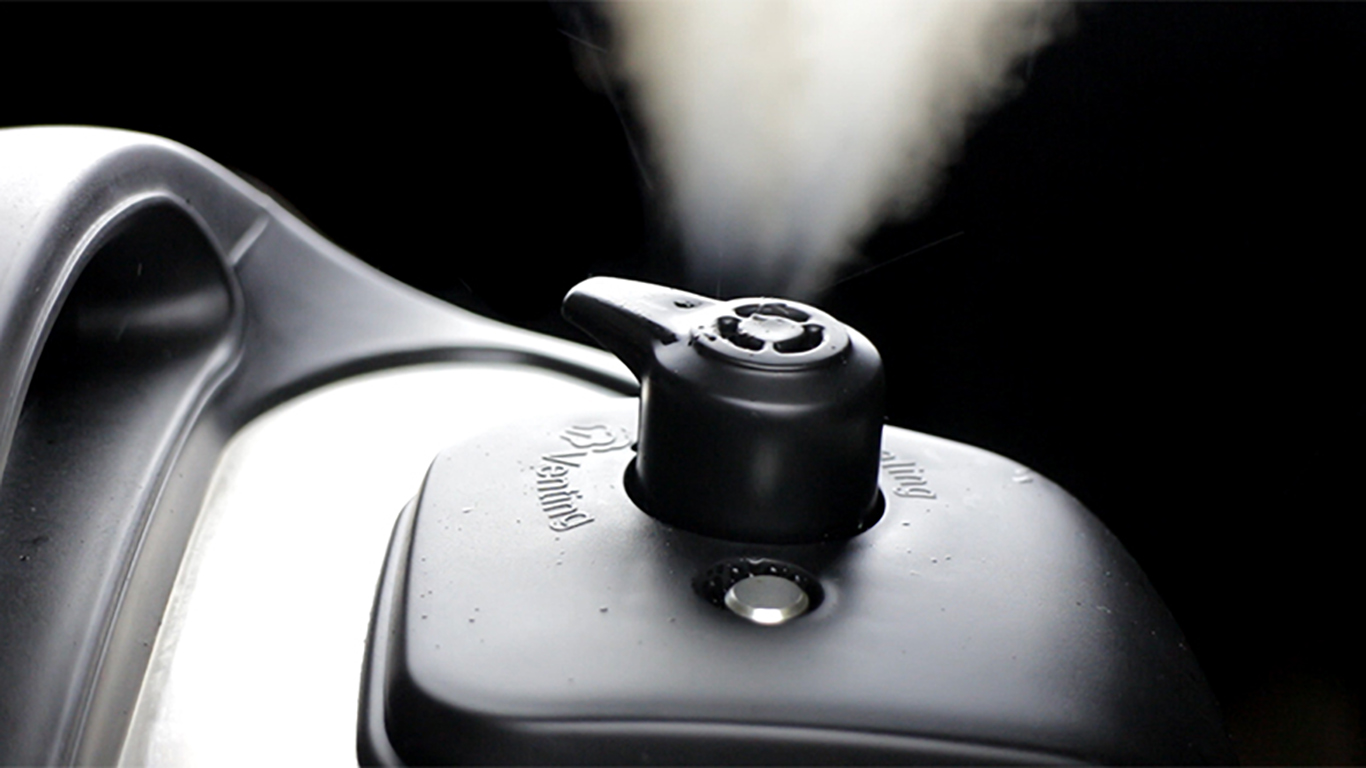Special Report
12 Ways You're Not Using Your Instant Pot Right

Published:
Last Updated:

The Instant Pot is a kitchen workhorse — an all-in-one slow cooker, pressure cooker, steamer, yogurt maker, sterilizer, rice cooker, sauté pan, food warmer, and probably a few other things as well. (It’s marketed as a “10-in-1” appliance.)
Click here for 12 ways you’re not using your Instant Pot right.
Canadian software engineer Robert Wang invented the Instant Pot in 2010 to solve a problem: After working long hours, he found that he didn’t have time to cook healthy meals for his family. When he lost his job, he focused on developing a device that would simplify and speed up the cooking process.
Slow cookers were convenient — and these are some of the most popular recipes — but by definition they were anything but fast. While giving his new appliance the ability to function as a slow cooker, Wang also introduced pressure-cooker technology, which greatly speeds up the cooking process.
Wang’s invention was not an overnight success. It went on sale in October 2010, and the following year sold no more than about 1,000 units. It soon took off, though. Double Insight, the Ontario-based company Wang founded to produce the Instant Pot (which is manufactured in China), became profitable in 2012. In 2016, Amazon sold more than 215,000 units in a single day — and the company reports that more than 30 million Instant Pots have been sold worldwide to date.
As popular as the Instant Pot is, owners don’t always use it correctly. Slow cookers are a lot easier to use, with fewer controls (but also fewer functions). Instant Pots aren’t all that complicated, but they do require a little more attention than slow cookers, so it’s not surprising that “Pot heads” (as enthusiasts sometimes call themselves) make mistakes on occasion. They forget or misunderstand basic functions; they add the ingredients at the wrong time; they position their Instant Pot some place it shouldn’t be.
24/7 Wall St. consulted numerous Instant Pot-related websites (including the company’s own), as well as comments posted by Facebook’s 1.8-million-member Instant Pot community, to discover some of the most common errors users of the appliance make.

You’re not using enough liquid.

You’re using too much liquid.
While over-hydrating your ingredients probably won’t cause major problems — or set off an error message — the fact that the Instant Pot works fast and seals in moisture means that adding too much liquid will likely result in a diluted dish without concentrated flavors.
[in-text-ad]

You’re using the wrong liquid.
The liquid added to your Instant Pot doesn’t have to be water — anything clear or almost clear, like wine, beer, broth, or fruit juice will do. However, sauces or other thick liquids, including dairy products like sour cream or even milk, will literally gum up the works or cause burn errors.

You’re adding some ingredients too early.
Ingredients that shouldn’t be added at the start of the cooking process can still be used in your recipes. It’s all a matter of timing. Cream soups, tomato sauces, roux, or other dense liquids should go in only after the dish is mostly cooked and the pressure in the pot is released. The same goes for thickeners like tomato paste or cornstarch.

You’re overfilling the Instant Pot.
Instant Pots have a fill line. Respect it. If the pot is filled too high, your dish will likely splatter around the kitchen when you open the lid. Ingredients that expand as they cook, like rice and dried beans, are particularly problematic in this regard. In addition to potentially causing a mess, overfilling the pot can prevent it from properly building up pressure.
[in-text-ad-2]

You’re cooking the wrong things — or the right things the wrong way.
Most Instant Pots have a saute function, and this works well for cooking filet mignon, chicken breast, salmon, and other tender proteins. If your model isn’t equipped with one, or you prefer not to use it for some reason, stick to tougher cuts of meat, like flank steak or chuck roast. More delicate ones might turn to mush under all that pressure and high temperature.

You’re using the timer button.
With a kitchen range or microwave, you set a timer and it keeps track of how long your food is cooking. The Instant Pot timer button doesn’t do that. It’s used for only one thing: to delay the start of cooking. How does the appliance keep track of cooking time, then? This is set automatically depending on which cooking method you’re using, and can be adjusted with plus or minus buttons. If you’re starting to cook right away, never use the timer button.
[in-text-ad]

You’re not sealing the pot.
In order to build up pressure, the Instant Pot has to be sealed, by putting the pressure valve in the right position. If you leave it in the venting position (where it would have been when you finished using the pot the last time), it won’t function properly and your food won’t cook.

You’re using the wrong venting method.
There are two ways to release the pressure that builds up in your Instant Pot — quick release and natural release. Quick release vents the steam rapidly, which is important with foods that are done quickly (lobster or corn on the cob, for instance), since they’ll continue to cook if the pressure is released too slowly. When a bit of additional cooking time doesn’t matter, as with soups and stews, natural release lets steam out gradually, letting foods keep their shape better — and lessening the chances of food spraying around your kitchen.

You’re “cooking” your Instant Pot.
For convenience, some people position their Instant Pot next to their stove, and even sometimes over an unused burner. Bad idea. The bottom of the appliance will melt if it gets too hot. High temperatures belong inside the appliance, not outside.
[in-text-ad-2]

You’re not reading the user manual.
Both slow cookers and pressure cookers are relatively straightforward to use. The Instant Pot is more complex. It can do many things, but how it does them isn’t always intuitive. Newcomers should read the user manual thoroughly before trying their first dish — and keep it on hand for troubleshooting and refresher courses.
Credit card companies are pulling out all the stops, with the issuers are offering insane travel rewards and perks.
We’re talking huge sign-up bonuses, points on every purchase, and benefits like lounge access, travel credits, and free hotel nights. For travelers, these rewards can add up to thousands of dollars in flights, upgrades, and luxury experiences every year.
It’s like getting paid to travel — and it’s available to qualified borrowers who know where to look.
We’ve rounded up some of the best travel credit cards on the market. Click here to see the list. Don’t miss these offers — they won’t be this good forever.
Thank you for reading! Have some feedback for us?
Contact the 24/7 Wall St. editorial team.